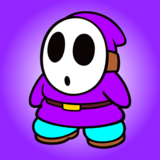A super giant thank you to Supergiant Games
By PurpleShyGuy 5 Comments
Because they deserve it.
Spoilers for Bastion, Transistor, Pyre and Hades
Just as Zagreus went down the River Styx with his mother Persephone in a reflective silence, I too was in a reminiscent mood. It’s hard to believe that Bastion came out all the way back in 2011, but when I first saw it on an episode of Invisible Walls (a video podcast by the GameTrailers team) I was drawn in by its hand-crafted visual style. There really wasn’t anything that looked quite like it, and little did I know it was the start of a love for Supergiant Games’ work that has lasted to this very day.
Bastion was more than just a pretty face, though, as it also showed the studio’s signature focus on interactive narrative. The game's narrator would not only fill you in on the lore of the world, but he would also make little comments about the weapons you chose or your performance in a trial. It was a small touch, but one that helped to connect player to game, and since most of the narration happened during gameplay, the extra exposition wouldn’t slow you down. You start off completely clueless about Caelondia, but by the end you know such things as how a Scumbag smells or what a Cinderbrick Stout tastes like.
The gameplay itself offered a great deal of variety in its weapons, and despite the limited customisation, the choices on offer could alter each weapon quite dramatically. However, what I remember fondly the most is countering with your shield, as a well-timed block would send a projectile flying back to your unfortunate target. But like I said, Supergiant is keen to express story through gameplay, and the choice of rescuing Zulf is easily the standout example. Left defenceless as you carry the wounded Zulf to safety, your enemy (the Ura) unleash their attack, and your health is agonisingly whittled down. But then the Ura suddenly stop, wordlessly moved by your compassion towards Zulf despite the harm he has caused.
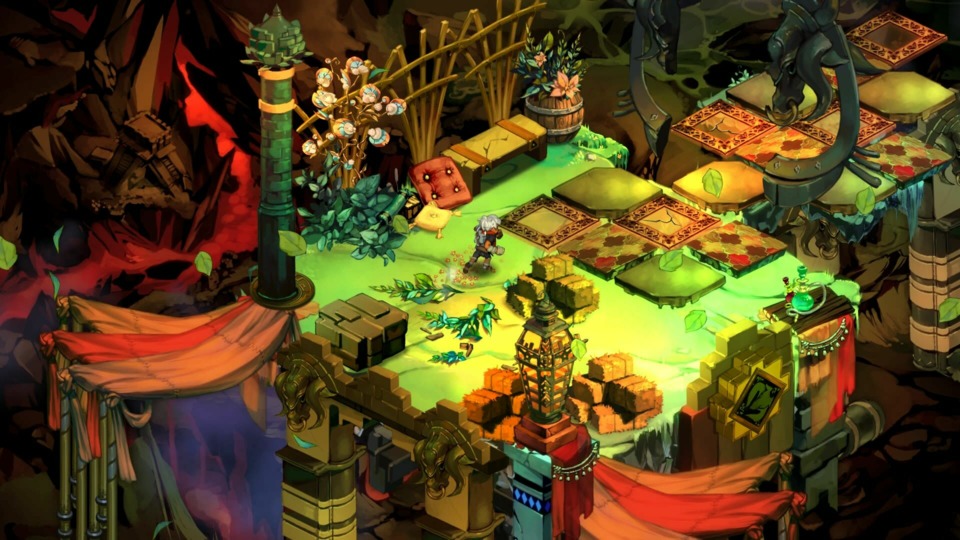
And speaking of choices, the final one proved to be a doozy. You can either use the power of the Bastion to go back in time before the Calamity (which has killed countless people in Caelondia), but with the issue that you’ll forget everything and likely be doomed to suffer the Calamity once again. Or you can use the Bastion as an airship to travel to other lands and forge a new future, accepting that the dead can never truly be saved. It left quite an impression on me, and the song Setting Sail, Come Home was the audio cherry on top.
The next game Supergiant released also had a brilliant ending song, along with a brilliant soundtrack, which was Transistor. While similar in many respects to Bastion with its hand-drawn visuals, isometric viewpoint and mix of melee and ranged combat, Transistor differed in one particular aspect. You could pause time to queue up actions much like you would do in a turn-based game, which became required as you progressed. Bringing turn-based elements and real-time action together has historically seldom fared well, but aside from the enemy moving out of sync during your planned attacks, it was surprisingly competent. You were also offered a far greater degree of choices when it came to battle, allowing you to change the effects of skills and abilities in a multitude of ways.
Not everything was useful mind you, and mixing together something like Jaunt with Switch was about as helpful as a water-soluble life ring, but the fact it allowed you the freedom to do it was great. Supergiant encouraged the player to mix things up by uncovering tidbits of lore and story through experimentation. Use a certain ability in various ways and it unlocked details about a person of importance, such as Sybil’s rivalry with the protagonist Red. Though, I would regard Transistor as the weakest of the four, simply because the story is a little too aloof for my tastes. It’s very much a plot that leaves it up to the audience to figure it out, but Transistor lacks that hook in its characters or narrative to get me motivated to do so.
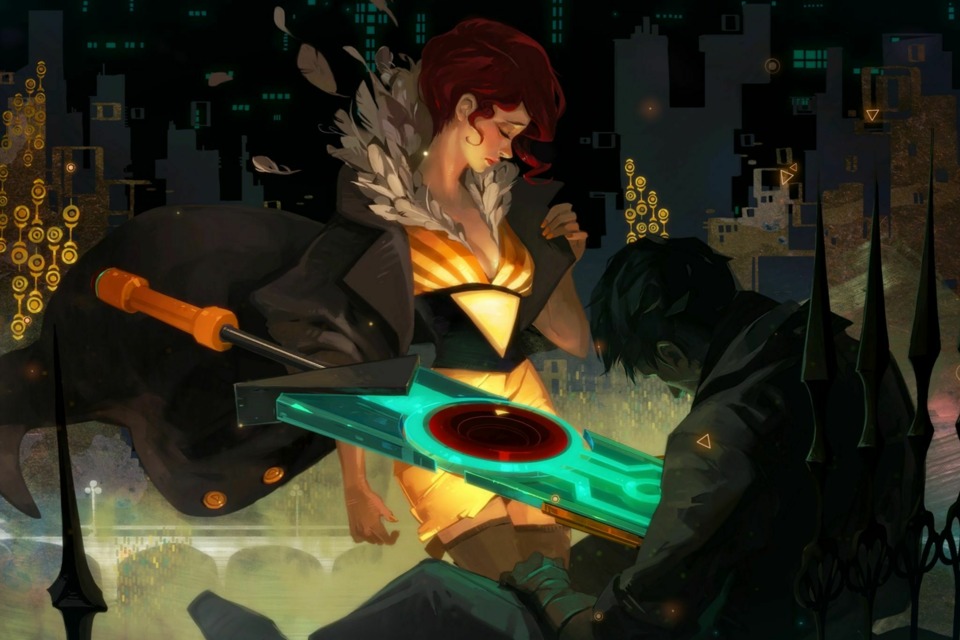
The best I can figure out is that Transistor is about holding human connection above the perfect society, that a utopia is nothing without the people who inhabit it. This explains why Red gives up in shaping a new world to be with her lover in “The Country” as they call it. What I can easily appreciate, however, is its style. The golds, greens and blacks of Cloudbank give an opulent yet cold atmosphere, and the music (which features Ashley Barrett on vocals) is hauntingly beautiful. It helps to sell Cloudbank as this glorious artistic achievement that also has a distinct lack of humanity to it, almost as if it was designed via an algorithm.
What does have humanity in spades is Supergiant’s next game Pyre, and I’m going to be upfront and say that Pyre is my personal top of the four. It is also the most unique, with combat being replaced by text-heavy sequences and mystical basketball matches. The slower pace might have turned some off, but Pyre really showed how excellent the team’s writing truly was, with it possessing a very Terry Pratchett-esque style of humour to it. The mystical basketball matches were a welcome change and no less exciting than what had come before it, with last second throws and frantic dashes towards the goal.
Pyre also handled world building rather efficiently, as when names of places or events are used such as the Downside or the Rites, you can scroll your cursor over to them to get a brief but insightful description. But the cast are the true stars of the show, and it's hard not to become attached to them when you have the loveably faithful Sir Gilman and co. at your side. Pyre uses this companionship to full effect, by having you send your team one-by-one from the hellish Downside to the much more liveable Commonwealth. This creates an obvious dilemma: do you keep your strongest players so you have a better chance at winning the Rites, or do you give them up so they can have a happy ending.
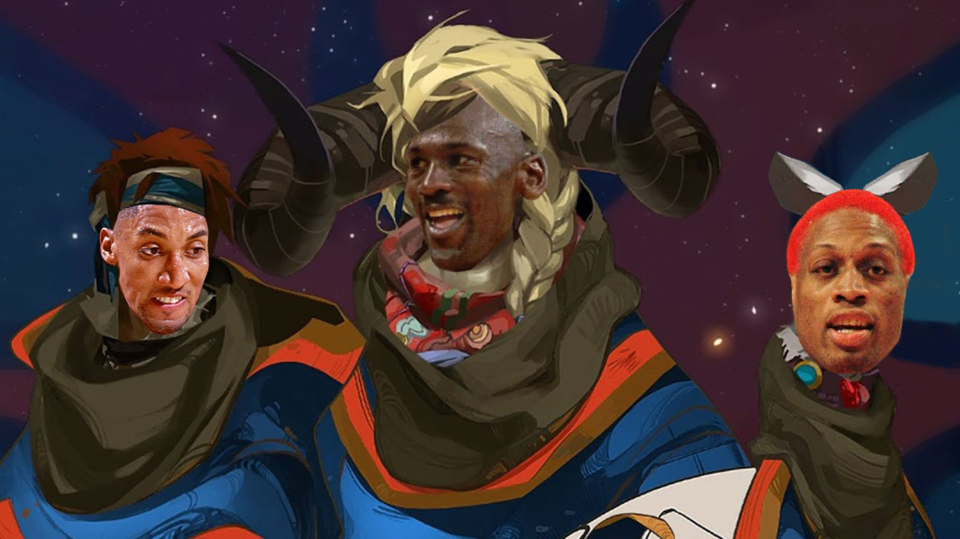
Even worse, you discover the Rites are coming to an end, meaning not everyone is going to make it out. And it’s not even like some of your opponents don’t deserve their freedom either, with victory against the honourable Almer Oldheart feeling particularly bittersweet. Supergiant’s work has never fell back on the simple concept of good vs. evil, but in Pyre it is at its clearest: it’s a story about desperate people thrown against each other for a chance of a better life. Yet, the game’s final point is about having the will to continue from failure, to live on past your mistakes and make the best of what you have. After all, just because it’s the apocalypse, doesn’t mean it has to be the end of the world.
And going from the end of the world to the underworld, Hades is the most recent addition to the Supergiant collection. And this is certainly one of the most wholesome imaginings of Greek mythology to be found, especially since Greek mythology is anything but wholesome. Some of my favourites include Artemis, who claims to be so above all the posturing and praise seeking of Olympus, but then will immediately try to kill you for not accepting her gifts like the introverted hypocrite that she is. Hades is easily the studio’s most ambitious game by far, with full voice acting for every character (and good voice acting at that), as appose to the odd gibberish barks in Pyre.
And you’ll be spending a lot of time with all of them, as you try, die and try again, because the rogue-like nature of Hades feeds into a story about not giving up on people. Many rogue-likes will give a light explanation on why you can repeatedly rise from the dead: in Spelunky it is a curse, in Dead Cells you’re an amorphous blob that can take over corpses, and so on. But Hades weaves this cycle into the very fabric of the game, with it being the central mechanic in conveying the struggle of the main protagonist. The overall message of Hades is how our fears and assumptions can stop us reconnecting with each other, as seen with Hades himself and his wife Persephone, and it is our goal to try (as many times as it takes) to reunite them.
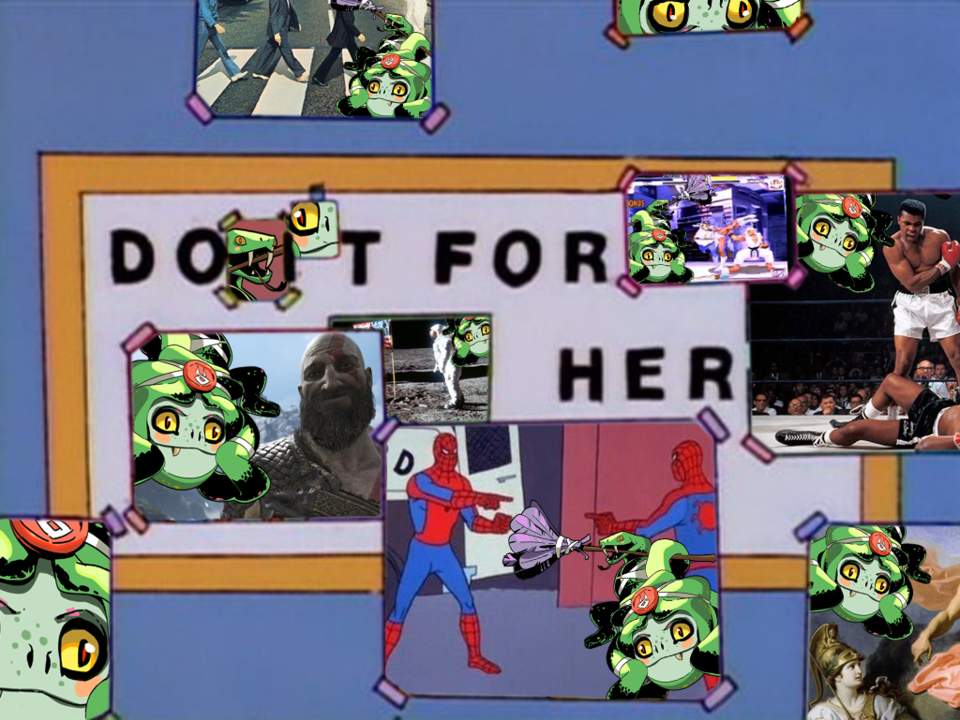
Seeing the end credits requires you to beat Hades many times, and luckily everyone has a lot to say – though it's not always compelling mind you. The sheer amount of dialogue is extremely impressive and helps to give a sense of reactivity to the characters as they comment on your smallest of actions. Since Hades is designed to be played repeatedly, a huge focus has been put into the way you can build your Zagreus. Weapons boast a good number of configurations and the various abilities make sure you are spoilt for choice. Hades strikes a decent balance at being random enough to force you to adapt, but still consistent enough for you to plan towards a certain play-style. My only real grievance with Hades is the you-can’t-hurt-me-now barrier bosses will throw up, which seems to only exist so that the big baddie can do a fancy looking animation.
Despite my issues, Supergiant Games has always delivered, and it has been a pleasure going through each of their titles. They’ve always seemed like a developer who have had the freedom to follow their passions, which certainly shows. And it is with great interest that I look forward to whatever Supergiant Games does next.
